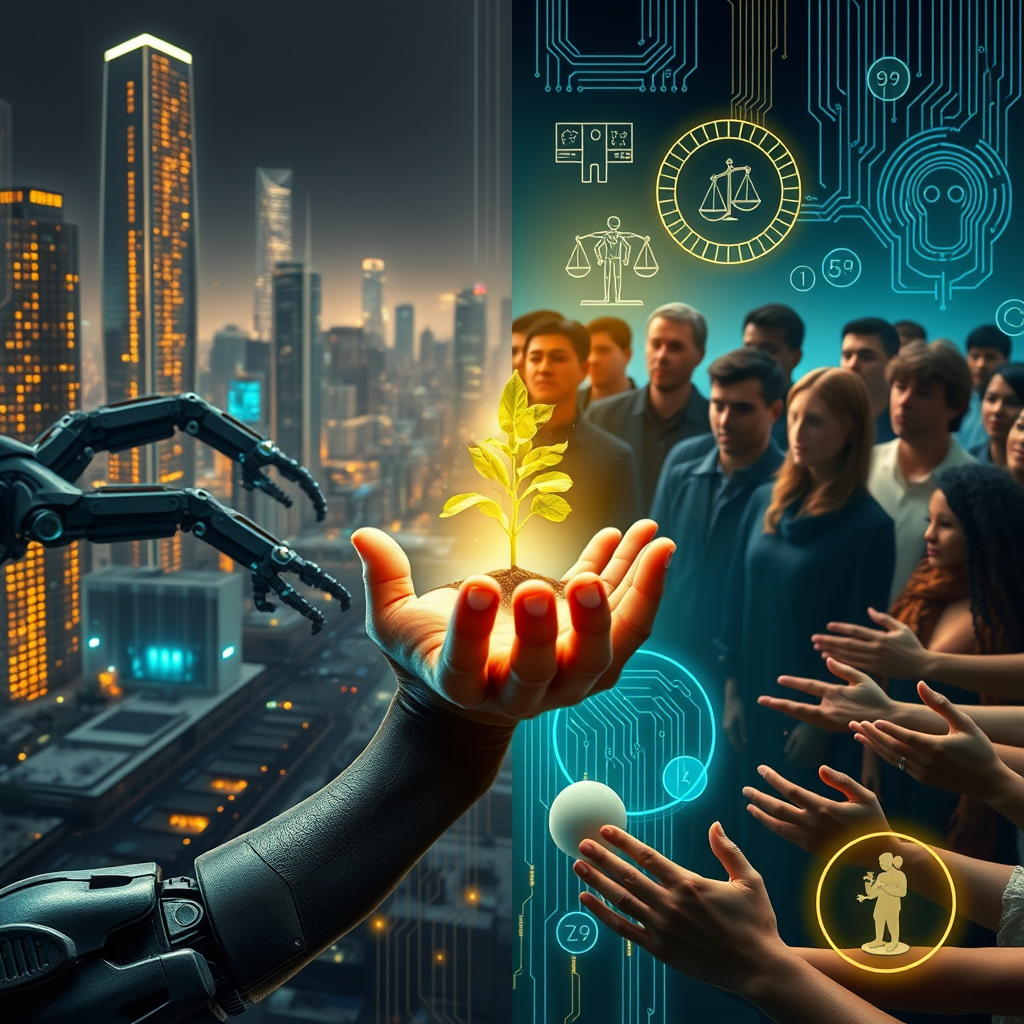
Introduction
The rapid ascent of artificial intelligence has moved beyond the realm of science fiction into the everyday fabric of our lives. From chatbots that draft emails to autonomous vehicles that navigate traffic, machines are increasingly capable of performing tasks that once seemed uniquely human. This technological surge forces us to confront a question that has long occupied philosophers, artists, and ordinary people alike: what does it mean to be human when a machine can outpace us in logic, creativity, and even emotional mimicry? The answer is not a simple binary of human versus machine. Instead, it is a complex reimagining of identity, purpose, and value that demands both introspection and collective action.
Historically, society has measured human worth largely through productivity and cognitive prowess. The industrial age celebrated the worker’s efficiency, while the information age rewarded the thinker’s analytical skill. Yet the new AI era erodes these traditional yardsticks. Machines can now write poetry, compose symphonies, and diagnose diseases with a speed and accuracy that outstrip human capabilities. In such a landscape, the metrics that once defined our self‑esteem and societal roles are no longer reliable. The challenge, therefore, is not merely to coexist with intelligent systems but to redefine what makes our existence meaningful.
This redefinition is not a theoretical exercise; it has tangible implications for the workplace, education, and even our personal relationships. As AI takes over routine and complex tasks alike, people are left with the paradox of having more free time yet feeling less purposeful. The solution lies in shifting our focus from competing with machines on their terms to cultivating qualities that remain uniquely human—deep empathy, moral reasoning, and the capacity to find meaning in uncertainty. By embracing these traits, we can transform the AI age from a threat to an opportunity for a richer, more humane society.
Main Content
The Erosion of Traditional Metrics
When a machine can analyze vast datasets in milliseconds, predict market trends, and generate art that resonates with audiences, the old benchmarks of human achievement become blurred. Productivity, once measured by output per hour, now competes with algorithmic efficiency. Cognitive ability, once celebrated as the hallmark of intelligence, is increasingly shared with systems that can learn from millions of examples. This erosion forces individuals to ask: if my work can be automated, what value do I bring? The answer is not to diminish our role but to broaden our definition of value.
Human Qualities as New Value
Empathy, ethical judgment, and the ability to navigate ambiguity are traits that remain difficult for AI to replicate. Empathy involves not just recognizing another’s emotional state but also responding in a way that acknowledges their lived experience. Ethical judgment requires balancing competing interests, understanding context, and making choices that reflect shared human values. These qualities are deeply rooted in social and cultural narratives that machines cannot fully grasp. In practice, professionals who excel in counseling, negotiation, and community leadership demonstrate that human-centric skills are not only irreplaceable but also increasingly sought after in an AI‑augmented economy.
Education and Work in the AI Era
The educational system must evolve to prepare learners for a world where technical proficiency is no longer a guarantee of employability. Curricula that prioritize critical thinking, interdisciplinary collaboration, and emotional intelligence will equip students to work alongside AI rather than against it. In the workplace, organizations can design roles that leverage AI for data analysis while humans focus on strategy, creativity, and stakeholder engagement. For example, a marketing team might use AI to segment audiences and predict trends, but the human creative director will craft narratives that resonate on a cultural level—something algorithms can suggest but not fully embody.
Cultivating Empathy and Ethical Reasoning
Cultivating empathy and ethical reasoning requires intentional practice. Mindfulness exercises, reflective journaling, and exposure to diverse perspectives can deepen our capacity to understand others. Ethical reasoning can be fostered through scenario-based training, where individuals evaluate complex dilemmas that involve conflicting values. By embedding these practices into daily routines—whether in corporate retreats, community workshops, or online courses—people can develop a skill set that complements AI’s analytical strengths.
A Call for Cultural Narratives
Culture shapes our perception of value. As AI becomes more pervasive, there is a risk that narratives will shift toward efficiency and optimization, marginalizing the human experience. Counteracting this trend involves creating stories that celebrate human resilience, creativity, and moral courage. Literature, film, and art that foreground human dilemmas in an AI context can inspire audiences to reflect on their own purpose. Moreover, public discourse—through podcasts, panels, and social media—can highlight the importance of human-centric skills, ensuring that society’s collective imagination remains anchored in empathy and ethics.
Conclusion
The AI age is not a harbinger of human obsolescence but a catalyst for redefining what it means to live meaningfully. By acknowledging that machines can replicate many cognitive tasks, we free ourselves to pursue the qualities that machines cannot—deep empathy, moral judgment, and the search for purpose in ambiguity. These traits become the new currency of value, guiding how we design work, education, and community life. As we navigate this transition, the most resilient individuals and organizations will be those that embrace a human‑first mindset, using AI as a tool to amplify, not replace, our uniquely human capacities.
Call to Action
I invite you to reflect on the ways AI is reshaping your sense of purpose. Consider the skills you possess that cannot be automated and think about how you can nurture them further. Share your insights in the comments below, and let’s start a conversation about how we can collectively cultivate a future where technology enhances, rather than diminishes, our humanity. Together, we can turn the challenge of AI into an opportunity for deeper connection, ethical growth, and renewed meaning.